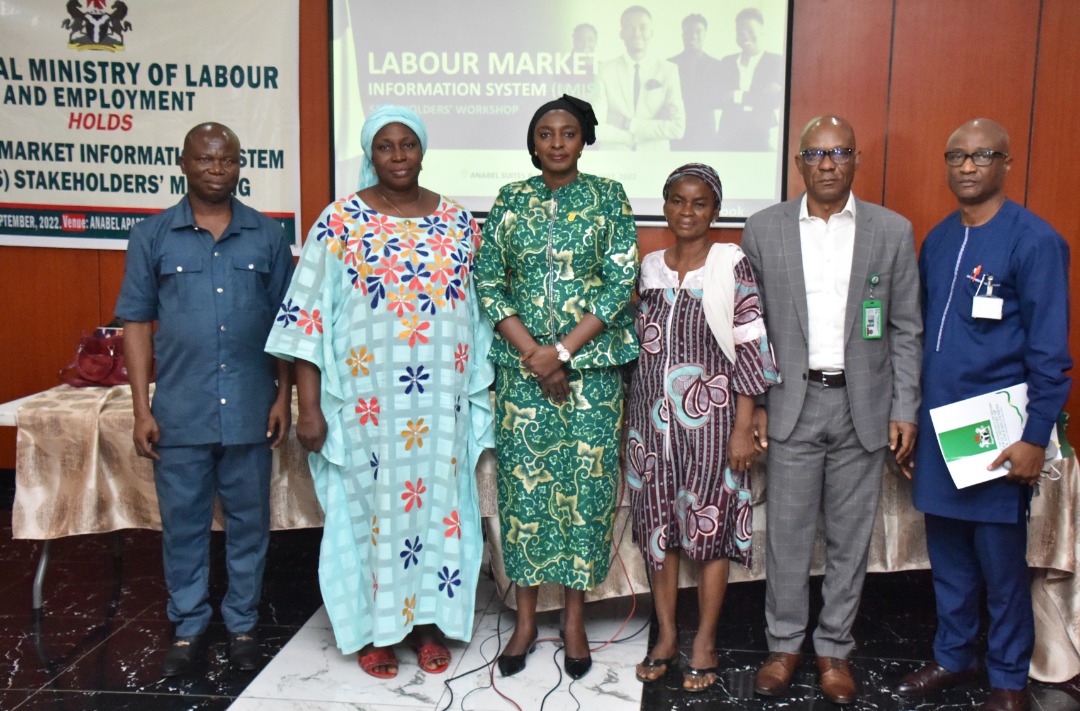News
Labour market information, key to policy making, planning – FG

The Federal Government says Labour Market Information System (LMIS) is key for policy making, education planning, career guidance and enterprise strategies.
Sen. Chris Ngige, Minister of Labour and Employment, said this while declaring open a three-day workshop on Labour Market Information System on Wednesday in Abuja.
Ngige, represented by Ms Daju Kachollom, the ministry’s Permanent Secretary, said the workshop was imperative towards addressing the problem of unavailability of labour market information.
The minister said that the lack of labour market information had weakened the foundation of national planning and development.
“This is because LMIS can provide policy-makers and decision-makers with insights into current and future labour market trends.
“Well-established LMIS provide insight into both the supply side and the demand side of the labour market.
“Thus, helping to forecast trends for job seekers, training institutions, enterprises and policy-makers,” he said.
Ngige added that the information on wages, working conditions and general labour market conditions were important for a number of stakeholders.
He said that the LMIS would be beneficial for students that were planning their career paths, job seekers that were searching for sustainable employments and enterprises that needed to remain competitive within the market.
He also said that the LMIS would be useful for trade unions that needed information in order to properly represent the interests of their members.
“Similarly, employers also need information on the availability of skilled labour, particularly if they are considering expanding a business line or adding new products and services.
“If we must generate comprehensive, reliable and up-to-date labour market information, there is need for better collaboration to maximise resources available, share information collected
“We must create a referral system of job vacancies in order to streamline services for both enterprises and job seekers,” he said.
Ngige, therefore, called for increased collaboration between employment service providers, industrial associations, trade unions, and employers’ organisations required for a successful public employment service.
He, however, said that the current process of accessing LMI was “unwieldy and cumbersome leading to avoidable waste of time and other valuable resources.”
He added that, it was in a bid to address these challenges that the ministry took the bold initiative to establish the LMIS in collaboration with other stakeholders.
“This is to bring together all the fragmented labour market information that we have across many Ministries and Agencies into one place.
“This is so that it can give tangible results for national policy making.
“Through this innovative approach, users of LMI will be able to access it through this source – the LMIS,” he said.
Also speaking, Kachollom,said the purpose of the workshop was to appraise stakeholders on steps taken by the ministry to establish a national Labour Market Information System.
Kachollom, represented by Mr John Nyamail, Director, Employment and Wages in the ministry said that effort had been made in the past to establish labour Observatory in Nigeria and none came to fruition.
According to her, the aims of LMIS were to bring together all the relevant stakeholders and institutions involved in the generation of labour market information in a single platform.
“This will ensure synergy, remove duplication and facilitate evidence-based decision making.
“The ministry cannot succeed in this endeavor without the active cooperation and involvement of all stakeholders.
“LMIS focal points for each MDA that will be appointed at the end of this meeting are expected to work with the Team of Consultants on an ongoing basis to ensure the success of this project,” she said.
Speaking, Prof. Abubakar Rasheed, Executive Secretary, National Universities Commission (NUC) said the commission had been vested with the responsibility of ensuring the orderly development of university education in Nigeria.
Rasheed, represented by Mrs Margret Oyedele, Deputy Director, in the commission, said the LMIS helped to create an overview of the Nigerian Education and Training System.
He said that it also provides an insight into the structure, size and operations of the system.
“It also helps to provide an overview of the relevant skills needed to drive our economy as presented and also present brief overview of the economic growth and employment in the country, among others,” he said.




 Davido's Net Worth & Lifestyle
Davido's Net Worth & Lifestyle 
